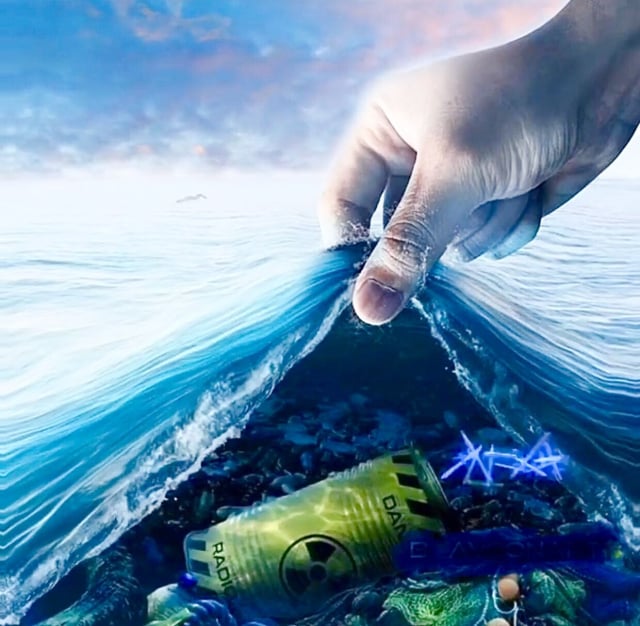The beaches, with their white sand and crystal clear waters, are a natural treasure that attracts millions of people every year. Not only do they offer a place to relax and enjoy the sun, but they also play a crucial role in marine and coastal ecosystems. However, increasing pollution and accumulation of garbage on beaches are putting these valuable environments at risk. Beach cleaning has become an urgent need to preserve marine biodiversity, protect public health and maintain the natural beauty of our coasts.
The Problem of Pollution on Beaches
Types of Commonly Found Garbage
The beaches are flooded with various types of trash, with plastics being the most prevalent. Common waste includes plastic bottles, bags, straws, food wrappers and other single-use items. These plastics not only ruin the aesthetics of our coasts, but also pose a serious threat to marine life. Turtles, birds and fish often mistake these plastics for food, which can lead to ingestion of toxic materials and, in many cases, death.
In addition to plastics, beaches are also contaminated with hazardous waste such as cigarette butts, broken glass, and chemicals. This waste not only harms the environment, but also poses physical risks to visitors. Cigarette butts, for example, contain toxins that can leach into water and soil, affecting water quality and the health of local wildlife.
Negative Effects of Pollution
Beach pollution has numerous negative effects. First of all, it directly impacts marine life. Marine animals can ingest or become entangled in plastics, which can cause injury, infection and, in extreme cases, death. Additionally, plastics can fragment into microplastics, which are ingested by smaller organisms and enter the food chain, affecting all marine life.
The deterioration of coastal habitats is also a serious consequence of pollution. Waste can disrupt ecosystems, damaging coral reefs, seagrass beds and other areas critical to biodiversity. This not only affects the local fauna and flora, but also impacts the human communities that depend on these ecosystems for their sustenance and recreation.
In addition to environmental effects, beach pollution has repercussions on human health. The presence of garbage and chemicals on beaches can contaminate the water and soil, which represents a risk for bathers and those who consume seafood. Water pollution can cause gastrointestinal illnesses, skin infections and other health problems.
Benefits of Beach Cleaning
Environmental Benefits
Beach cleaning brings with it numerous environmental benefits. By removing trash, we protect wildlife and preserve marine habitats. Removing plastics and other hazardous waste reduces the risk of ingestion and entanglement for marine animals. Additionally, beach cleanups help conserve marine ecosystems, such as coral reefs and seagrass meadows, which are crucial to biodiversity and ocean health.
Another important environmental benefit is the improvement of water quality. Removing debris from beaches reduces the amount of contaminants that can leach into the water, improving the health of marine ecosystems and the safety of water for recreational activities and human consumption.
Social benefits
Beach cleanups also have significant social benefits. Clean beaches are safer and more pleasant recreational spaces for visitors. Tourists and local residents can enjoy activities such as swimming, snorkeling, water sports, and relaxing in an environment free of trash and pollution. This not only improves the quality of life of people, but also increases the tourist attractiveness of coastal areas.
Increased tourism, in turn, generates economic benefits for local communities. Clean beaches attract more visitors, boosting business for hotels, restaurants, shops and other tourism-related services. This can create jobs and improve the local economy, especially in areas that rely on tourism as a primary source of income.
Additionally, beach cleanup activities foster environmental awareness and a sense of community. Involving the community in these efforts educates people about the importance of conservation and promotes a sense of shared responsibility toward the environment. Beach cleanups can be opportunities for people to connect with nature, learn about environmental issues, and take action to protect their environment.
How to Perform an Effective Beach Cleanup
Preparation and Planning
Organizing an effective beach cleanup requires careful preparation and planning. It is crucial to gather volunteers and assign specific roles, making sure to provide necessary materials such as gloves, trash bags, and recyclable containers. Coordination with local authorities and conservation organizations can increase the impact of the cleanup and ensure proper waste disposal.
It is important to carry out a preliminary evaluation of the most affected areas to identify critical points of contamination. This will help plan the logistics of the cleanup and focus efforts on the areas that need it most. Additionally, it is useful to establish a waste classification system to separate recyclable materials from non-recyclable and hazardous waste.
Cleaning Day
On cleanup day, volunteers should meet at a designated meeting point to receive instructions and materials. It is essential that all participants wear gloves and appropriate protective equipment to avoid injuries and exposure to contaminants.
During cleaning, it is important to review the most affected areas and proceed with the collection and classification of waste. Volunteers should work in groups to cover more ground and ensure each area is thoroughly cleaned. Proper disposal of collected trash is crucial to prevent waste from returning to the environment. Recycling bins and collection points must be clearly marked and accessible.
Post-Cleaning
After cleaning, it is important to report on the results and achievements achieved. This motivates the community and helps plan future initiatives. Organizers should share statistics on the amount and types of waste collected, as well as any observations on the health of the coastal ecosystem.
Reflection and planning for future cleanings are also essential. Organizers can evaluate the effectiveness of the cleanup and make adjustments for improvement in future initiatives. Additionally, continued education and awareness in the community are crucial to maintaining commitment to environmental conservation.
Beach Cleanup Initiatives and Projects
Organizations and Programs
There are numerous organizations and programs dedicated to beach cleanups. Ocean Conservancy, with its "International Coastal Cleanup" program, has mobilized millions of volunteers around the world to collect tons of trash from coasts. This program not only focuses on beach cleanups, but also collects data on the types and quantities of waste found, helping to better understand the problem of marine pollution and develop more effective solutions.
Local and regional projects also play a crucial role in the conservation of coastal ecosystems. Many community organizations and environmental groups organize regular beach cleanups and awareness campaigns to educate the public about the importance of keeping beaches clean.
Success stories
Success stories in different parts of the world demonstrate the power of community collaboration. In the Galapagos Islands, for example, beach cleanups organized by the Galapagos National Park and various local organizations have significantly reduced the amount of plastic waste on beaches and improved the health of marine ecosystems.
In Australia, the "Take 3 for the Sea" campaign has inspired thousands of people to pick up at least three pieces of litter every time they visit the beach, resulting in the removal of millions of pieces of litter from shorelines. This initiative has been adopted by schools, businesses and communities across the country, proving that small actions can have a big impact.
How to take part
Participating in beach cleanups is an excellent way to contribute to environmental conservation. People can join existing events and campaigns organized by environmental and community organisations. Many of these cleanups are carried out on specific dates, such as International Coastal Cleanup Day, which is celebrated in September each year.
Additionally, anyone can start and organize local beach cleanups. This may involve collaborating with friends, family and neighbors, as well as coordinating with local authorities to ensure proper waste disposal. Social media and other online platforms can be useful tools to promote the initiative and attract volunteers.
Beach cleanups are essential to protect our coastal ecosystems and public health. By removing trash, we preserve marine life, improve water quality, and keep beaches safe and attractive. Additionally, these activities promote environmental awareness and strengthen the community.
The benefits range from environmental protection to boosting tourism and the local economy. Participating in beach cleanups, whether by joining existing campaigns or starting local projects, allows us to contribute significantly to the conservation of our natural resources.
Every effort counts. Let us join forces to ensure a cleaner, healthier future for our beaches, oceans and the planet.


